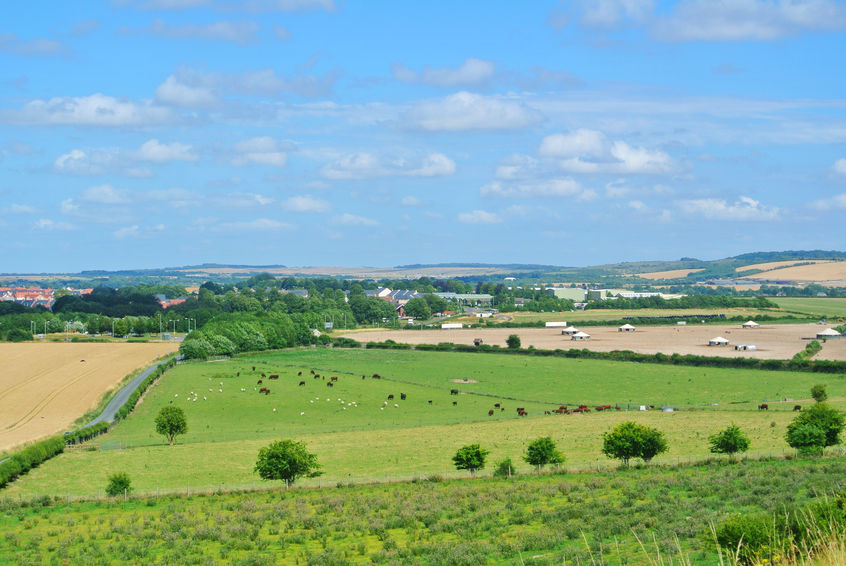
England’s farmland market is busier than it has been for some time, with many farms and estates attracting multiple bidders and selling for more than their guide price.
Rural property specialists Strutt & Parker says the market is more active than it has been for four years, with demand in general outstripping supply.
It is currently seeing multiple buyers for most of the farms its selling, with some prime properties sparking bidding wars and selling for well in excess of their guide price.
One of the factors behind this is the wide range of buyers currently looking for land, Strutt & Parker says, with farmers, private investors, lifestyle buyers and green investors all in the mix.
"We have even seen some examples of gazumping, which is something we have not seen in the farmland market for the past five years," said Matthew Sudlow, head of estates at Strutt & Parker.
“One farm recently marketed by Strutt & Parker, being sold in lots, attracted bids from 31 bidders and went under offer for £1m more than its guide.
“Another went under offer within a week of it being put on the private market. In fact, our analysis shows that over 70% of farms and estates that have sold in recent months have exchanged hands for more than their guide."
Strutt & Parker's Farmland Database, which records the details of all farms, estates and blocks of publicly marketed farmland in England over 100 acres in size, shows 30,400ha of farmland came to the open market in Q2 2021.
This is well up on the 5,800 acres marketed in Q1, although cumulatively the first half of the year is still below the five-year average.
In total, 110 farms have been publicly marketed during the first half of the year, which is just below the five-year average of 120.
However, there is also a large amount of land being marketed privately, with private sales now estimated to account for as much as 50% of the land being sold in some regions.
This does mean that supply is higher than it first appears, Strutt & Parker explains, although in historical terms total volumes are still low.
The range of prices paid for both arable and pasture land remains large, with the land achieving the highest prices tending to be in areas popular with lifestyle buyers or private investors, such as the south east and the Cotswolds.
The proportion of farms bought by lifestyle buyers and private investors rose to its highest level on record – accounting for 45% of transactions in 2020. Non-farmers are now the main type of buyer in the south east and south west.
Arable land has sold for between £6,800 and £15,800/acre across the first six months of 2021 (H1), with a Q2 average of £9,000/acre. The feeling among agents is that this average will have crept up by next quarter.
Pasture land has sold for between £3,000 and £10,000 per acre in H1, with an average of £7,100 per acre.
Mr Sudlow says 2021 is the year when cuts to farmers’ direct payments, paid through the Basic Payment Scheme, start to bite, but as yet this is not having a major impact.
“There is also still considerable amounts of rollover money to be invested and buyers driven by environmental objectives are starting to bid on more properties," he added.
